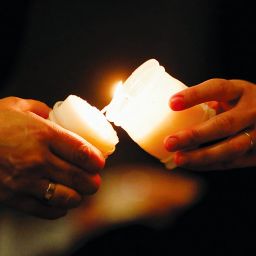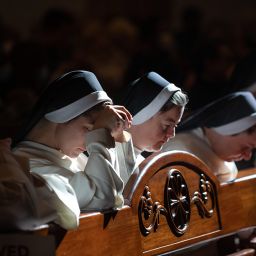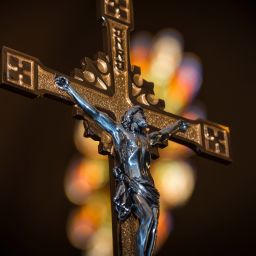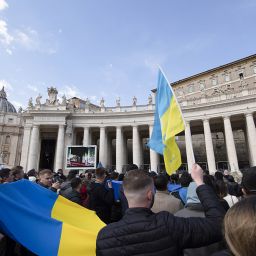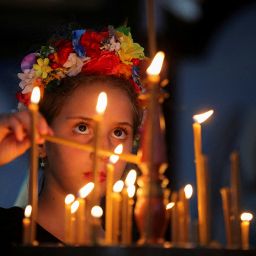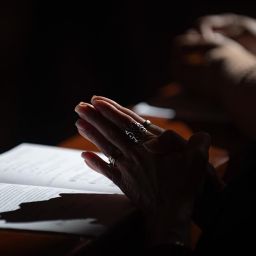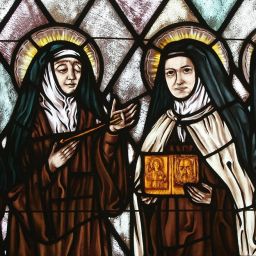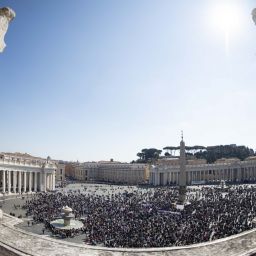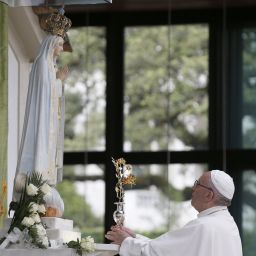By Father John Bayer, O. Cist.
Special to The Texas Catholic
Our world needs Christian faith. A book that proved this to me regarding the medical field is Losing Our Dignity: How Secularized Medicine is Undermining Fundamental Human Equality by Charles C. Camosy.
After a brief account of the Church’s major role in shaping medicine and establishing the study of medical ethics, Camosy details recent efforts in our society to exclude religious concerns from medicine. An example of this exclusion is the rejection of human dignity as a “useless” (Ruth Macklin) or “stupid” (Steven Pinkers) idea injected into medical ethics by religion. Admittedly, our idea of human dignity derives in significant part from the Judeo-Christian roots of our culture. Many shapers of culture once believed that every human person is an image of God (Gn 1:26-27), and therefore someone whose essential rights can’t be denied. Christians go even further, because in Jesus they believe God died for love of each and every human person, and that he has chosen to identify himself with us all, such that what we do to “the least ones” we do to him (Mt 25; cf. Acts 9:4). This religious idea of dignity rooted our inalienable rights in what we always are and not in what we do or can do at a given time.
This religious foundation for human rights and equality is increasingly replaced by the idea of “autonomy” – or the idea that only the functioning and conscious human being has inalienable rights. But if autonomy determines our rights, then the unborn, comatose or otherwise impaired are at grave risk. Consequently, some human beings, like in the infamous cases of Jahi McMath or Alfie Evans, are even denied medical care against their families’ will. Care for human beings in critical condition or at the end of their lives can be ethically complex, and thankfully the Church has a living tradition of reflection on this topic. However, this complexity should never lead us to determine the value of life, and the justice of medical care, on the basis of autonomy alone. Even if we are unlikely to actualize our capacities fully, we remain essentially who we are –persons worthy of love.
Camosy narrates the erosion of our readiness to recognize the inalienable personhood of some of the most vulnerable human beings. A fateful year was 1968, when an ad hoc committee at Harvard Medical School suggested a new definition of death to include those in presumably “irreversible” comas (59). It gave two reasons to justify its new definition: first, people in comas are often a “burden” and the resources needed to care for them are scarce; and second, the new definition would facilitate obtaining organs for transplantation. Camosy summarizes, “Tragically, to achieve their aim they gave up on the concept of fundamental human equality. The committee set the precedent that certain living, breathing, gestating, growing, puberty-reaching, infection-fighting, and homeostasis-maintaining human beings were not the moral or legal equal of other human beings. Only these kinds of human beings, and not others, could have their vital organs removed and put into someone else’s body. Those who held power in medicine and then in politics quickly picked up this precedent.” (61-62).
Again, one reason we’re here is that influential scholars reject the role played by religious ideas in medical ethics. In their defense, perhaps we have not been very good at explaining our ideas. Many Christians feel uninformed or are afraid of feeling like they are imposing their views on others, and so they have chosen to be silent and accept their own marginalization. If you have felt such inhibitions, as I think I have, know that there is no view from nowhere. Everyone speaks from a position, including the secular person. If Catholic theology is marginalized, Camosy writes, then another theology – or another “study of what is fundamentally and ultimately true” (42) – will just take its place. We must admit there are different perceptions of what is good, and these establish different lines of reasoning. If we think what is most worth pursuing in life is autonomy or achievement, then we will, logically enough, come to devalue human lives that are dependent or impaired. By contrast, if we think what is worth pursuing is the sacrificial love predicated upon the essential dignity of every human life created by God in his own image and called to a unique role in the history of salvation, then we will, logically enough, value every human life. In which world do we want to live?
Medical ethics is a massive topic. Here I simply want to say that we need Christian medical professionals to be well formed and then ready to share their faith in our pluralistic society. Much is at stake, if Camosy is right. I end with his closing exhortation: “Can we stop being embarrassed about our religious beliefs in public contexts and respectfully but firmly request an equal seat at the table of dialogue? […] Now is not the time to be arrogant and dismissive, but it also is not a time to be hesitant and timid. […] We should enter these dialogues with hope and confidence that on our own terms and without fear we have something essential to say to the culture in defense of fundamental human equality.” (184).
Father John Bayer, O. Cist., is a monk at the Cistercian Abbey of Our Lady of Dallas in Irving.


